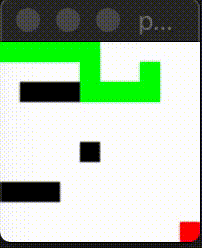Learning to solve mazes using reinforcement learning algorithms like DynaQ, DynaQ+, Priority Sweeping, Heuristic Reward Learning, DQN and testing their performance compared to traditional algorithms. Goal is also to visualize the algorithms thinking and learning process.
added dynaQ agent, which shows quick learning from experience, but still takes 10000 episodes to finally start building towards the target policy due to the nature of the maze, and the reward being very far off
- a possible solution is to optimise exploration even more for the problem
- dynaQ+ algorithm solves this problem efficiently, that will be gen4
added a heuristic reward, less negative the closer you get to the goal... this speeds up training by a large factor and dynq q agents starts focusing on figuring out the shortest path to the solution while modelling the environment maze
- next steps is to move on to dynaq+ with time weighted exploration incentives with heuristics for faster convergence
fixed a lot of edge case bugs, and improved reward hypothesis, resulting
algorithms almost always converge withing 50 episodes and find optimal path(s)
soon after... dynaq heuristic finds more of the shortest paths withing the same
time frame
both models show high learning speed, and almost never repeat a blunder class
mistake they once made (hitting a wall or exiting the game scope), this is a
major advantage of dynaq planning+learning algorithms over naive q learning
- next step is to compare these 2 against dynaq+
adding a last-visit-time-delta based heuristic to the rewards in the planning phase to enhance explorative behaviour, dynaQ+, doesn't really help performance in this static maze problem setting. In some runs, it even reduces convergence speed because the agent starts exploring behaviour when it doesnt need to and already has a fact base
- next step is to add priority sweeping

